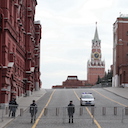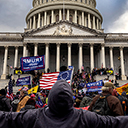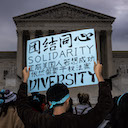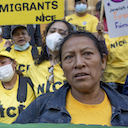
The Language of Democracy
In Plain Style, Christopher Lasch showed that we can render even the most iconoclastic demands in common speech.


In Plain Style, Christopher Lasch showed that we can render even the most iconoclastic demands in common speech.

More Russians have died in Ukraine than in all wars the country has fought since 1945 combined. But escalating repression and a culture of helpless disengagement have kept support for the war high.

A conversation with Emily Hund, the author of The Influencer Industry: The Quest for Authenticity on Social Media.

The only verdict on Trump and the MAGA movement that finally matters will be delivered through politics.

Grassroots groups can help elected officials resist the pressures of mainstream political culture.

Bly’s 1887 masterpiece Ten Days in a Mad-House reminds us that the ultimate test for public safety programs for the mentally ill is their impact on the most vulnerable.

It is a mistake to ignore the connection between the attempted judicial coup in Israel and the occupation of the West Bank.

The Supreme Court is poised to overturn race-based affirmative action. But preferences based on socioeconomic disadvantage—which are both politically popular and legally sound—could produce similarly high levels of diversity.

An interview with Michael Walzer on The Struggle for a Decent Politics.

After more than half a century of dependence on Russian oil and gas, the war in Ukraine has forced German officials to reconsider their reliance on fossil fuels entirely.

If American leftists take seriously their commitment to self-rule and loathing of foreign aggression, they should shed their ambivalence about supporting Ukraine.

The metaverse heralds an age in which hardly anyone still believes that tech firms can actually solve our problems.

An interview with Clara E. Mattei, the author of The Capital Order: How Economists Invented Austerity and Paved the Way to Fascism.

The government of Guam has appointed a Commission on Decolonization, but U.S. control means that all of the island’s options, including the status quo, have substantial downsides.

In The Future We Need, Erica Smiley and Sarita Gupta argue for extending collective bargaining beyond the workplace.